The thyroid gland is tasked with the production and regulation of two main hormones, T3 (triiodothyronine) and T4 (thyroxine). These hormones in turn regulate numerous body processes like energy generation, metabolism and ultimately mood fluctuations. Knowing the health-state of your thyroid glands is thus critical as you may unknowingly be experiencing hyperthyroidism or hypothyroidism which are both fluctuations from normal thyroid levels.
Hyperthyroidism – This happens then there is overproduction of hormones and may result in tremors, heightened anxiety, weight loss and generally a feeling of being on a constant high.
Hypothyroidism – When there are insufficient hormones being produced, and individual may experience depression, weight gain and a lack of energy.
If you experience either of these symptoms, it is advisable to see a doctor for testing to ascertain the cause of your ailment. To arrive at conclusive test results, the doctor will probably order a broad scope of tests, each targeting the individual T3 and T4 hormones. These tests also reveal whether the problem lies in the thyroid’s structure or functions. With the high frequency of thyroid dysfunction, practicing physicians should be well equipped conduct the T3, T4, T3RU and TSH thyroid level tests.
Normal thyroid levels
Though a tiny gland located in front of the larynx, the thyroid keeps the entire body functionality in harmony. It dictates your heartbeat, the clarity of your brain, the body’s temperature and the functioning every cell and organ in entirety. The hormones produced in the thyroid travel through the bloodstream and influence activities throughout the body. When out of balance, you may easily think it is a case of body fatigue but the loss of rhythm should be reason enough for you to worry. Though doctors are yet to agree on the normal thyroid levels, most laboratories seem to draw a clear line between high and normal thyroid levels. While high secretions of thyroid hormones result in ‘optimal’ body functions such as a good mood and appetite, in retrospect however, the body may be working too much and wearing-out its own cells.
Thyroid function tests
The T3 RIA Test
As referenced in this thyroid study, a normally functioning thyroid gland produces 20% of triiodothyronine (T3). In some instances, a diseased gland produces abnormally high amounts of T3 while still producing the healthy amount of T4 required by the body. T3 levels are assessed using radioimmunoassay using the T3 dextro isomer; this has a 99% affinity to T3 and only 1% affinity for T4. The normal range for T3 in the bloodstream should ideally be between 80 ng/dl and 230 ng/dl. This is however dependent on the antibody used and the assay conditions during the test.
During this test for normal thyroid levels there is a fine line between hyperthyroid and normal patients because overproduction of T3 leads to heightened activities within the body. Test results show that patients who are hypothyroid portray normal amounts of the T3 serum while those who are euthyroid have high concentrations of T3 in their bloodstreams. For this reason, the T3 test is not conclusive enough to diagnose cases of hypothyroidism but should instead be conducted along other tests.
The T4 RIA Test
Also measured by radioimmunoassay, this revolves around the use of the T4 dextro isomer; as a binding agent. It has a high affinity for T4 whose optimal production by the thyroid gland is 80%. Though it is naturally occurring in the body, dextro isomer is in minute quantities which are not measurable. Though the antibody has affinity for both T4 and T3, the latter’s concentration in the plasma is one fifteenth that of T4 and thus introduces negligible errors.
According to a study published in 2007, Dr. Surks states, in ideal situations, the concentration of T4 in the bloodstream should be between 5 ug/dl and 12 ug/dl. Of all the thyroid tests, T4 by radioimmunoassay is the most used. After applying the corrective measures to reduce the errors, the test is referred to as T7 once it is combined with T3RU. It conclusively shows the amount of thyroxine and is reputed as the best measure for normal thyroid levels especially when the patient doesn’t take any form of thyroid medication.
The TRH Test
TRH is produced by the hypothalamus and this hormone influences the pituitary gland produce and distribute TSH. Under normal circumstances, TSH maintains a baseline of 5 but when a patient is injected with TRH, the baseline elevates to between 10 and 20. As a test that check for both T3 and T4 without specificity, patients who are experiencing excess amounts of either of these hormones do not react to a TRH injection; their TSH baseline is already in the 10-20 range indicating that they may either be suffering from hyperthyroidism or hypothyroidism.
Presently, the TRH test is the best bet of detecting hyperthyroidism in its initial stages. In instances where patients depict a baseline of 40 and above after TSH injection, this undisputedly indicates hypothyroidism. Apart from testing for normal thyroid levels, the TRH test can also be used on cancer patients on thyroid replacement medication to determine whether they are taking sufficient medication. Occasionally, the test may be used by physicians to assess the functioning of the pituitary gland.
Using TSH to detect thyroid gland failure
A new version of TSH has led to limited use of the TRH test in many clinical settings. Using immunoradiometric assay, the method used to measure the pituitary’s production ability of TSH, spiking levels of TSH are an early indication of the onset of thyroid failure. Under normal circumstances, only low levels of TSH, lower than 5 units, are required to maintain the functionality of the thyroid gland. According to Thyroid Advisor’s article on Normal Thyroid Levels, in early hypothyroidism, there is overproduction of TSH even when T4 and T3 production remains within the normal range. The elevated TSH levels in such cases are an indication of the diminishing circulation of the thyroid hormones throughout the body and consequently, the onset of the thyroid gland’s failure.
As opposed to the earlier TSH test, the new test indicates low TSH levels whenever the thyroid is overly stimulated; this response is normal as the pituitary is acting to reduce the thyroid’s hyperactivity. Since the TSH level interpretations are dependent on the thyroid hormonal levels, the new TSH test should be conducted alongside other tests like T4 and T3.
The T3RU Test
This test indirectly measures TBG’s (Thyroid Binding Globulin) binding capacity. It is essential in the determination of low or high levels of T4 since patients portraying signs of these conditions may not necessarily have abnormal T4 production but rather abnormal rates of TBG. The T3RU test should be conducted alongside the T4 RIA test since there can be a false attribution of thyroid dysfunction when the T4 test is conducted solely.
Patients experiencing hyperthyroidism portray saturated levels of TBG but they may not necessarily have abnormal productions on the T4. The Resin uptake is naturally high when an individual has low concentrations of TBG. As a way of assessing normal thyroid levels, the T3RU test accurately assess the thyroid’s functionality by checking for both hyperthyroidism and hypothyroidism, a feat most tests cannot achieve simultaneously. When conducted with the T4 test, the T3RU not only indicates fluctuating T4 levels but also highlights the cause of the fluctuation. Due to this, high T3RU levels indicate low concentrations of both T4 and TBG.
Iodine Uptake Scan
In order to make the thyroid hormone, the gland uses iodine absorbed from the bloodstream from the food we take. The amount of iodine taken up by the thyroid is thus a means of measuring its functionality. Hyperthyroid patients are fond of taking excessive amount of iodine while hypothyroid patients take insufficient amounts of the same. A ‘Thyroid Uptake’ is used to measure the precise iodine amount absorbed by this gland; ideally, the patient should ingest radioactive iodine on an empty stomach for the physician to draw an accurate conclusion. For individuals already on thyroid medications, their glands won’t take up much iodine since the medications have turned off their thyroids. Since the thyroid may at times take up iodine but fail in converting it to thyroid hormones, it is advisable to carry out this test alongside the blood tests discussed earlier.
Thyroid Scan
Just as in iodine uptake scan, assessing normal thyroid levels in a patient using thyroid scan requires the ingestion of radioisotope which should then be left to concentrate in and around the thyroid; these two tests can thus be conducted concurrently. A camera scan, which takes between 5 and 10 minutes, is conducted using a gamma camera which detects the radioisotope elements in the thyroid. For a clarified image of the thyroid gland however, the CRT (Computerized Rectilinear Thyroid) scanner is the best bet. It obtains a life size image of the thyroid, making it easier for your physician to study.
Since radioactive elements are used in both of these tests, pregnant women are strictly advised against taking either of these tests as their unborn child is at the risk of developing thyroid defects in the process. These two last tests are the least popular since they only provide the basic information on thyroid status without delving into the causes of thyroid dysfunctions.
- Assessing the state of thyroid cancer patients following a surgery
- Assessing the location and size of goiter before treatment
- Making out nodules and ascertaining whether they are ‘hot’ or ‘cold’
- Making out thyroid tissues in the chest or the base of the tongue
- Common symptoms for hypothyroidism include;
- Depression and random irritability
- Intolerance to cold conditions
- Brittle and dry hair
- Problems recollecting memory
- A slow heart rate
- General body fatigue
- Gaining weight
- High levels of cholesterol in the bloodstream
- A sluggish bowel and constipation
Common symptoms for hyperthyroidism include;
- Nervousness and random irritability
- Intolerance to hot conditions
- Swelling of the thyroid gland
- Waves of tremors
- Insomnia
- Loss of weight
- Random and frequent bowel movement
- Mind fatigue
These symptoms are not exclusive to a deficit in normal thyroid levels and as such, consulting with a physician is the best way to find out whether you are suffering from thyroid dysfunction. Thyroid tests have advantages and disadvantages and it is important to make sure you pick the one that is right for you.
Advantages of thyroid blood tests
Blood tests are the most accurate way of determining the hormonal levels in your blood. Apart from delivering accurate results, they get to the root cause of hyperthyroidism or hypothyroidism as the case might be. The most common risk factors of the thyroid disease are age, personal history, family history as well as gender (with women facing a greater risk of developing it). Other factors that can be avoided to steer clear of this ailment are:
- Smoking cigarettes – this results in autoimmune thyroid ailment. Among the hundreds of chemicals contained in cigarettes, thiocyanate is an anti-thyroid agent which promotes the occurrence of hypothyroidism
- Iodine deficiency or excessive intake – this results in hypothyroidism and hyperthyroidism respectively. Insufficient iodine also leads to the development of goiter which directly affects the thyroid gland’s functions
- Soy foods – apart from causing hypothyroidism, soy foods inhibit the body’s ability to absorb thyroid medicines. Though there is no consensus on the topic from different researchers, substantial research suggests that those at a high risk of developing thyroid disease should avoid soy foods.
- Exposure to radiation – radiation causes all forms of cancer including thyroid cancer. The Chernobyl nuclear accident is a true depiction of this.
- Exposure to surgical antiseptic – as much as the antiseptic cleans, exposure to open wound during surgery has far-reaching consequences.
The knowledge of these and more ways to prevent thyroid diseases is invaluable and can be derived from blood tests conducted by seasoned physicians.
Disadvantages of thyroid tests
Thyroid tests that require the intake of radioactive isotopes such as iodine uptake scan and Thyroid scan are inherently dangerous to unborn infant. This means that pregnant women cannot undertake these options even when it is in their best interest. They run the risk of exposing their unborn to development defects.
Blood tests conducted have to be counter checked alongside other tests since none of them can give accurate results on its own. Lab experts will thus take up a considerable amount of time before knowing the precise cause of thyroid disease in women. They all have their limitations as there is yet to be a development of a single test which assess normal thyroid levels independently.
Statistically, women are 6-8 times more likely to develop thyroid diseases than men. Checking with your physician for normal thyroid levels is highly advised as you will be in a position to take precautionary or corrective measures as advised.
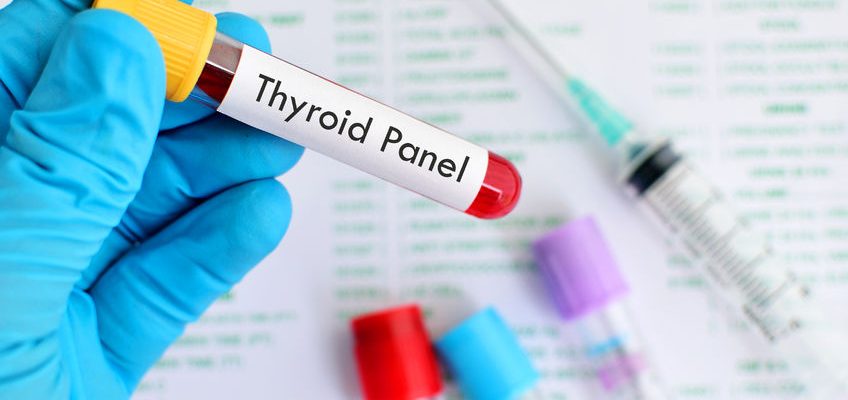

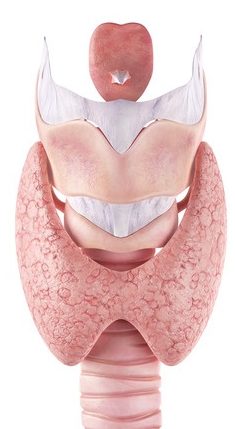 According to the
According to the 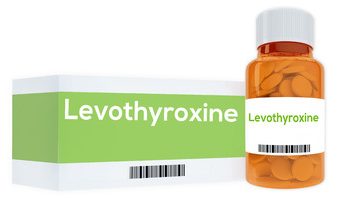
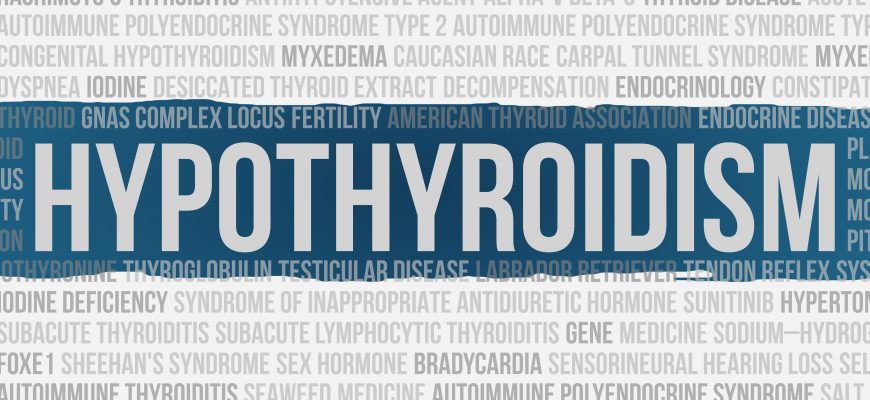
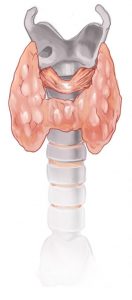 An underactive thyroid can be medically managed in a number of ways including the use of synthetic drugs and natural supplements. One area often overlooked by individuals suffering with hypothyroid problems is diet. There are everyday foods that can alleviate hypothyroidism and others that exacerbate thyroid function problems. When functioning normally, the thyroid gland produces thyroxine (T4) which is then converted into triiodothyronine (T3) by an enzyme called
An underactive thyroid can be medically managed in a number of ways including the use of synthetic drugs and natural supplements. One area often overlooked by individuals suffering with hypothyroid problems is diet. There are everyday foods that can alleviate hypothyroidism and others that exacerbate thyroid function problems. When functioning normally, the thyroid gland produces thyroxine (T4) which is then converted into triiodothyronine (T3) by an enzyme called  No dietary recommendation would be complete without mentioning fresh fruit and vegetables. They are typically low in calories and aid weight loss. However, cruciferous vegetables, such as broccoli, cabbage, cauliflower and turnips should be taken in moderation and cooked well for individuals that have hypothyroid problems as they can interfere with the absorption of iodine.
No dietary recommendation would be complete without mentioning fresh fruit and vegetables. They are typically low in calories and aid weight loss. However, cruciferous vegetables, such as broccoli, cabbage, cauliflower and turnips should be taken in moderation and cooked well for individuals that have hypothyroid problems as they can interfere with the absorption of iodine.